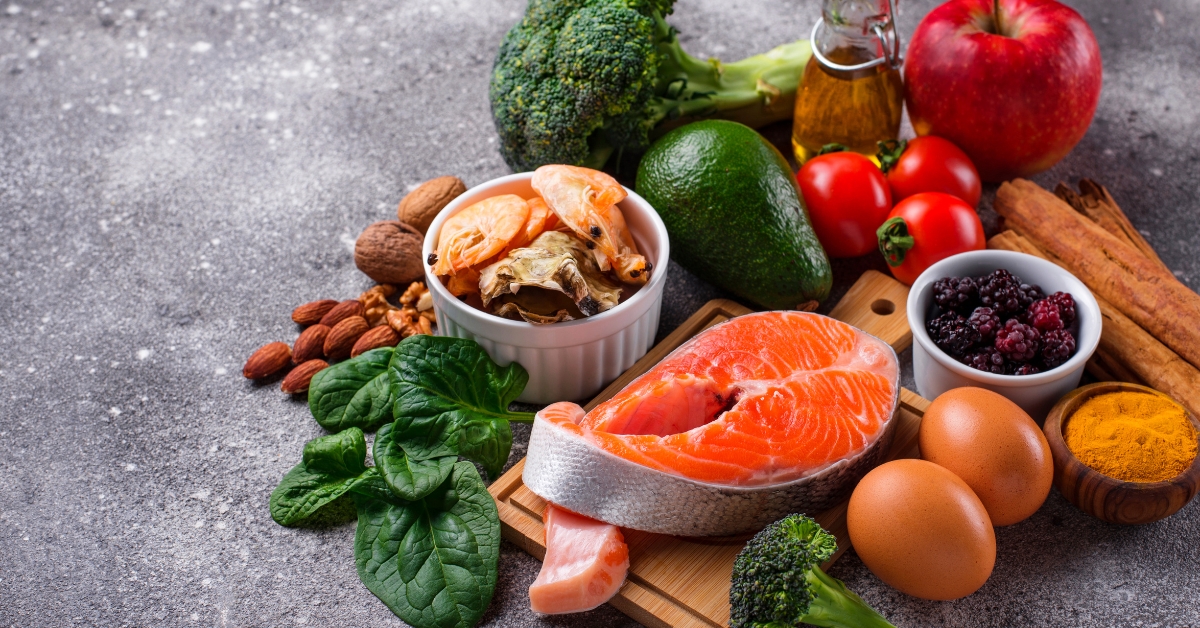Cognitive health is one of the most crucial aspects of aging gracefully. While genetics and lifestyle factors like exercise and sleep matter, nutrition is increasingly recognized as a major influence on memory, mental clarity, and the long-term risk of cognitive decline. Dementia, including Alzheimer’s disease and other neurological disorders, is often linked to inflammation, oxidative stress, and poor circulation—factors that can be influenced, for better or worse, by the foods we consume.
This blog explores 10 specific foods backed by research to help reduce the risk of dementia and fight memory loss. These are not exotic or hard-to-find items—they’re accessible, everyday foods that, when included regularly in your diet, may offer protection for your brain.
1. Blueberries: The Ultimate Brain Berry
Blueberries are one of the most researched foods for brain health. Rich in anthocyanins, a type of flavonoid with antioxidant and anti-inflammatory effects, they help combat oxidative stress and inflammation in the brain.
How They Help:
- Improve communication between brain cells
- Enhance memory retention
- Slow cognitive aging
Tip: Add a handful of blueberries to your morning oatmeal or smoothie.
2. Fatty Fish: A Source of Omega-3 Fatty Acids
Salmon, mackerel, sardines, and trout are high in DHA (docosahexaenoic acid), a form of omega-3 essential for maintaining the structure and function of brain cells.
Why It’s Important:
- DHA supports the brain’s cellular membranes
- Omega-3s reduce the buildup of beta-amyloid plaques, linked to Alzheimer’s
- Helps reduce depression and improve mood
Serving Suggestion: Include fatty fish in your meals at least twice a week for optimal benefit.
3. Leafy Green Vegetables: Nature’s Multivitamin
Spinach, kale, collard greens, and Swiss chard are packed with vitamins, minerals, and antioxidants essential for brain protection.
Key Nutrients:
- Vitamin K
- Folate
- Lutein
- Beta carotene
Benefits: These compounds are linked to slower cognitive decline and improved memory in aging adults.
Tip: Steam, sauté, or add to soups and salads regularly.
4. Walnuts: The Brain-Shaped Nut with Cognitive Benefits
Walnuts are rich in healthy fats, including ALA (alpha-linolenic acid), a plant-based omega-3, as well as antioxidants and polyphenols.
Why Walnuts Matter:
- Improve cognitive function
- Reduce oxidative damage
- Support neuron growth and function
Easy Addition: A small handful daily as a snack or topping on cereal or yogurt.
5. Turmeric: The Golden Spice That Crosses the Blood-Brain Barrier
Turmeric contains curcumin, a powerful anti-inflammatory and antioxidant compound that can directly enter the brain and bind to plaques associated with Alzheimer’s.
Cognitive Impact:
- Reduces neuroinflammation
- Enhances memory
- May increase brain-derived neurotrophic factor (BDNF), a growth hormone linked to brain health
Usage Tip: Use with black pepper (which contains piperine) to increase curcumin absorption.
6. Broccoli: A Cruciferous Vegetable with Neuroprotective Properties
Broccoli is loaded with antioxidants and vitamin K, which plays a key role in forming sphingolipids, a type of fat found in brain cells.
Cognitive Benefits:
- Antioxidant support
- Anti-inflammatory effects
- Supports better memory and cognitive performance
Cooking Idea: Lightly steam to retain nutrients and pair with olive oil and garlic.
7. Pumpkin Seeds: Small But Dense with Brain-Supporting Nutrients
These tiny seeds are a powerhouse of magnesium, iron, zinc, and copper—minerals essential for brain signaling, oxygen transport, and memory.
Why They Work:
- Magnesium supports learning and memory
- Zinc regulates nerve signals
- Iron supports oxygen delivery to the brain
Snack Smart: Add to trail mixes, salads, or yogurt.
8. Eggs: A Nutrient-Dense Source of Choline and B Vitamins
Eggs, particularly the yolks, are high in choline, a nutrient used to produce acetylcholine, a neurotransmitter essential for mood and memory.
Key Benefits:
- Enhances brain development and memory
- Supports concentration
- Provides B6, B12, and folate—vital for brain function
Breakfast Tip: Include eggs a few times per week as part of a balanced breakfast.
9. Green Tea: A Mind-Calming Beverage That Sharpens Focus
Green tea contains both caffeine and L-theanine. This combination has been shown to improve brain function and alertness while also promoting relaxation.
What Makes It Unique:
- Increases brain connectivity
- Improves memory and attention span
- Reduces anxiety and mental fatigue
Best Practice: Drink a cup in the morning or early afternoon to maximize alertness without interfering with sleep.
10. Dark Chocolate: A Tasty Treat That Supports Cognitive Function
Dark chocolate (with at least 70% cocoa) is rich in flavonoids, caffeine, and theobromine—compounds that have shown benefits for brain health.
Brain Benefits:
- Improves blood flow to the brain
- Supports memory, especially visual-spatial memory
- Enhances mood and focus
Moderation Matters: A small square per day can provide cognitive support without excess sugar.
Final Thoughts: Building a Brain-Protective Diet for the Long Haul
No single food will prevent dementia or eliminate memory loss on its own. However, consistent inclusion of brain-supporting nutrients in your diet can greatly reduce your risk and promote cognitive resilience over time.
Adopting a varied and balanced diet that incorporates the ten foods listed above is a practical, sustainable way to support your brain health. Combine this nutritional approach with regular physical activity, mental stimulation, quality sleep, and social interaction to build a holistic lifestyle that guards against cognitive decline.








